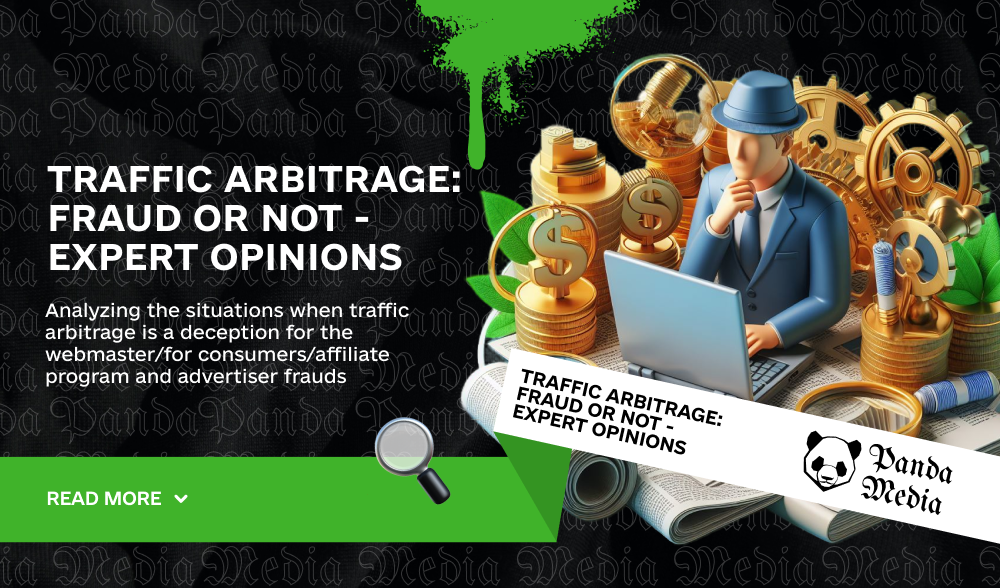Don't miss interesting news

Traffic arbitrage is a customer acquisition process in which webmasters are rewarded with a percentage of the sales made. In this process, webmasters set up advertising campaigns and make money. However, for beginners, this path can seem complicated and overflowing with subtleties, and sometimes even look like a scam. Let’s find out under what circumstances traffic arbitrage can be a scam and who becomes a victim.

Newbies in arbitrage often face the fact that their starting budget goes nowhere without attracting a single client. This outcome may seem like a scam to webmasters who don’t see the expected return on their efforts. But in fact, this is a typical and expected result. Even experienced arbitrageurs have unsuccessful campaigns. Arbitrage requires precision: any mistake can lead to loss of funds. Key aspects of success include choosing the right offerer, testing creatives, and the ability to optimize ad campaigns. To minimize risks at the initial stage, it is recommended to limit the size of the investment.
However, there are cases when a webmaster does fall victim to fraud, such as when there is shaving by an affiliate program. This means that CPA networks can artificially underestimate the amount of traffic or reject real sales without paying the webmaster his earnings. To avoid cooperation with unreliable affiliates, it is important to study the ratings of CPA networks, where proven and reliable affiliate programs are listed.

Scenarios when traffic arbitrage turns out to be a scam for consumers
Traffic arbitrage can overstep the bounds of legality when webmasters intentionally mislead advertisers and consumers. This is often associated with so-called black arbitrage, examples of which include:
These examples emphasize the need for a careful approach to selecting traffic arbitrage offers to avoid trouble for both yourself and consumers.
In the process of traffic arbitrage, there may be times when arbitrageurs act dishonestly with affiliate programs and advertisers. Cheating can occur in such cases as:
Such methods, while they may increase the arbitrageur’s performance in the short term, are not profitable for advertisers in the long term, as users attracted in this way do not show loyalty to the product or service.